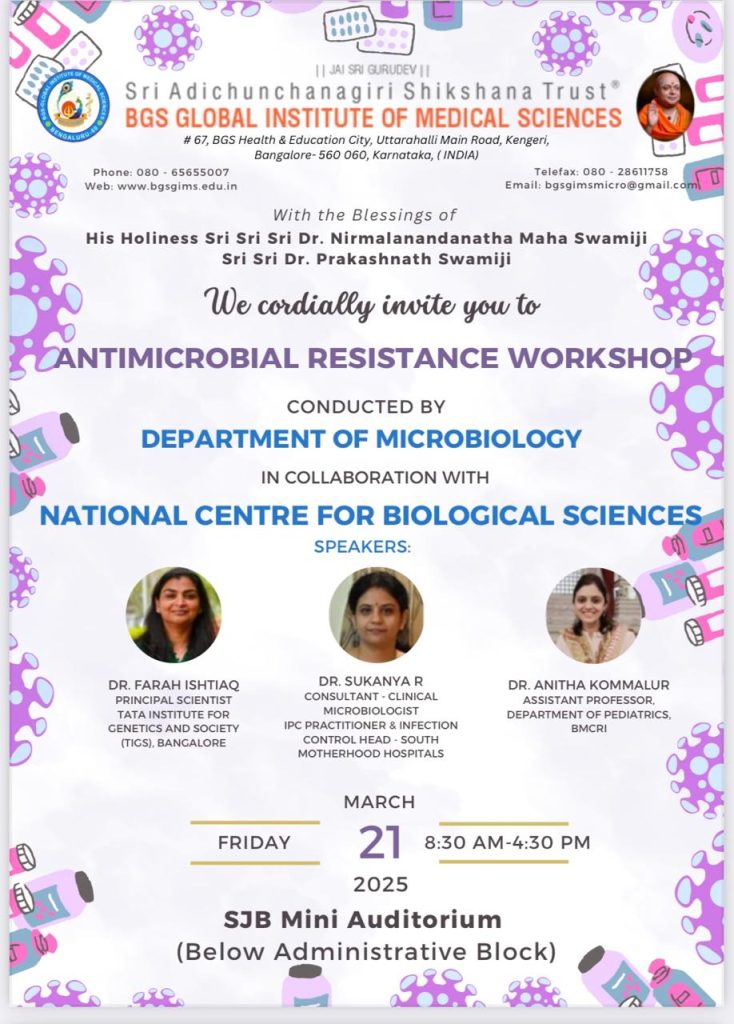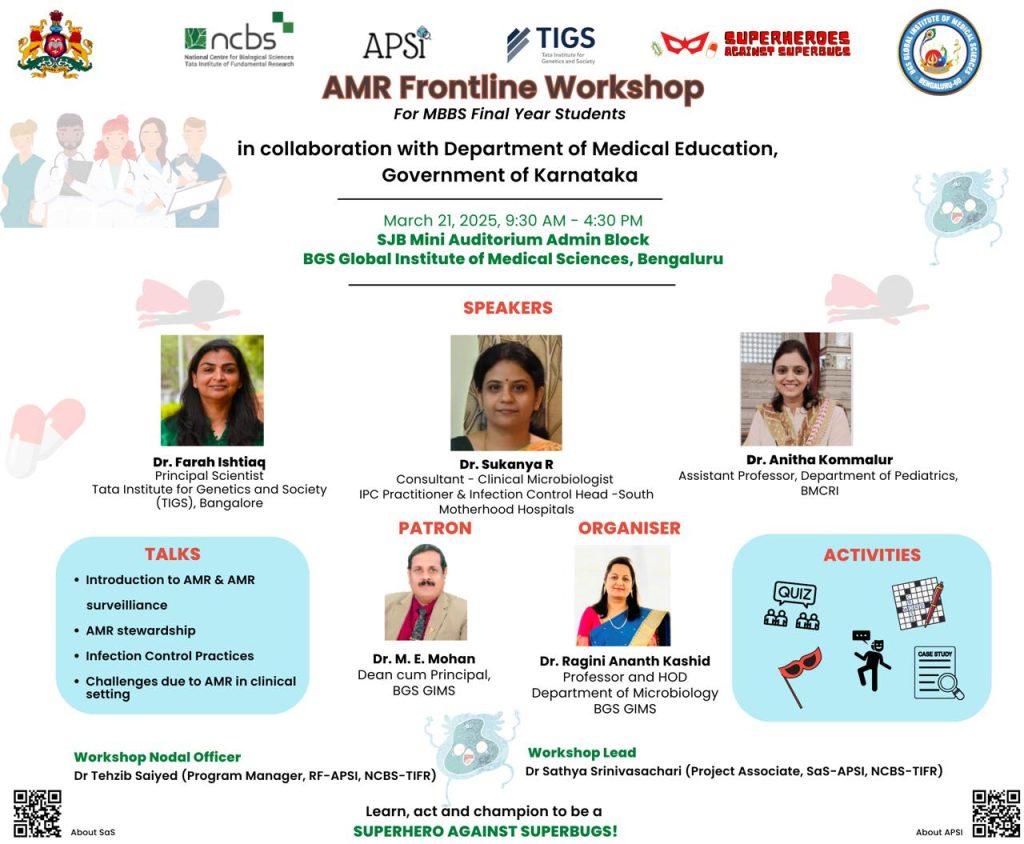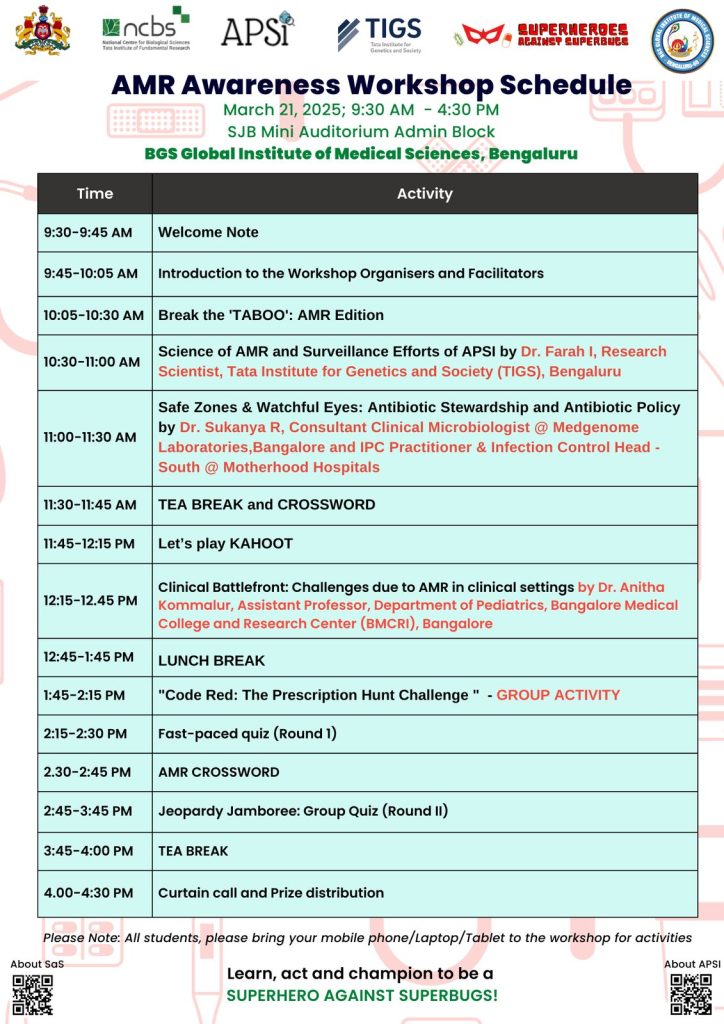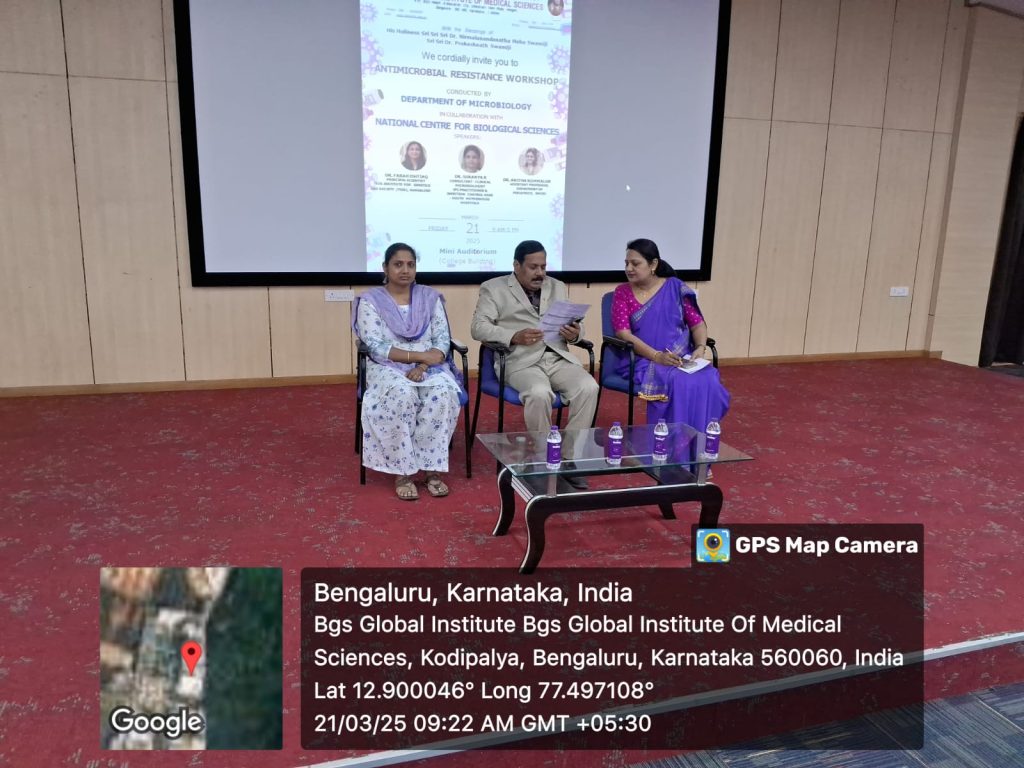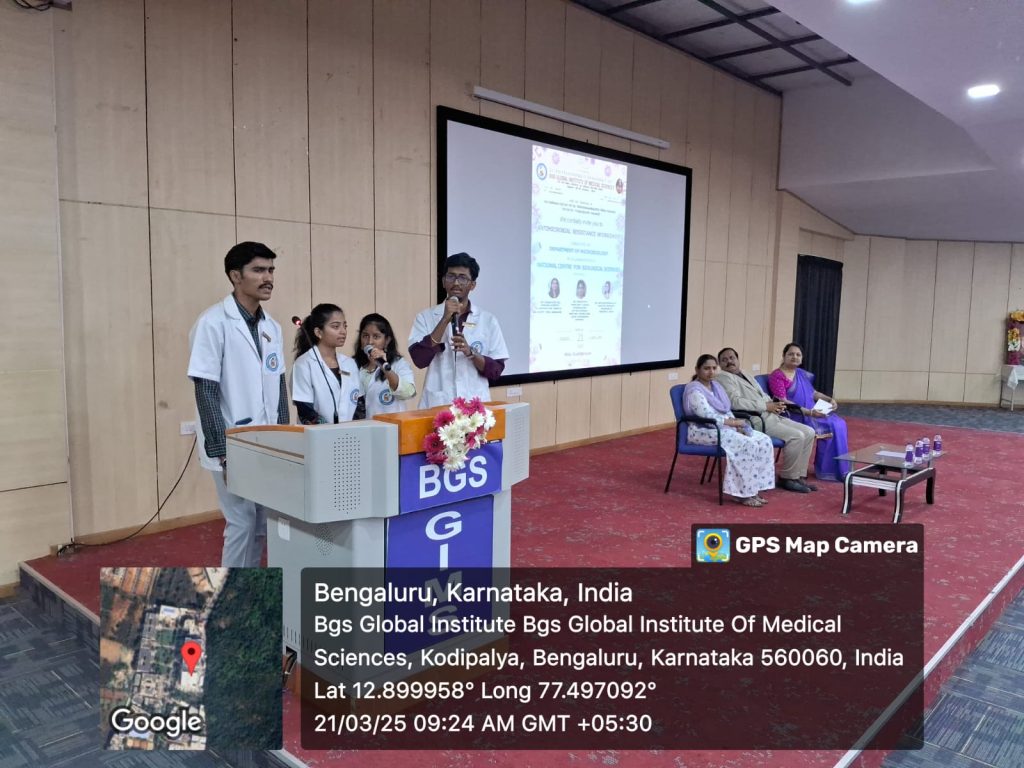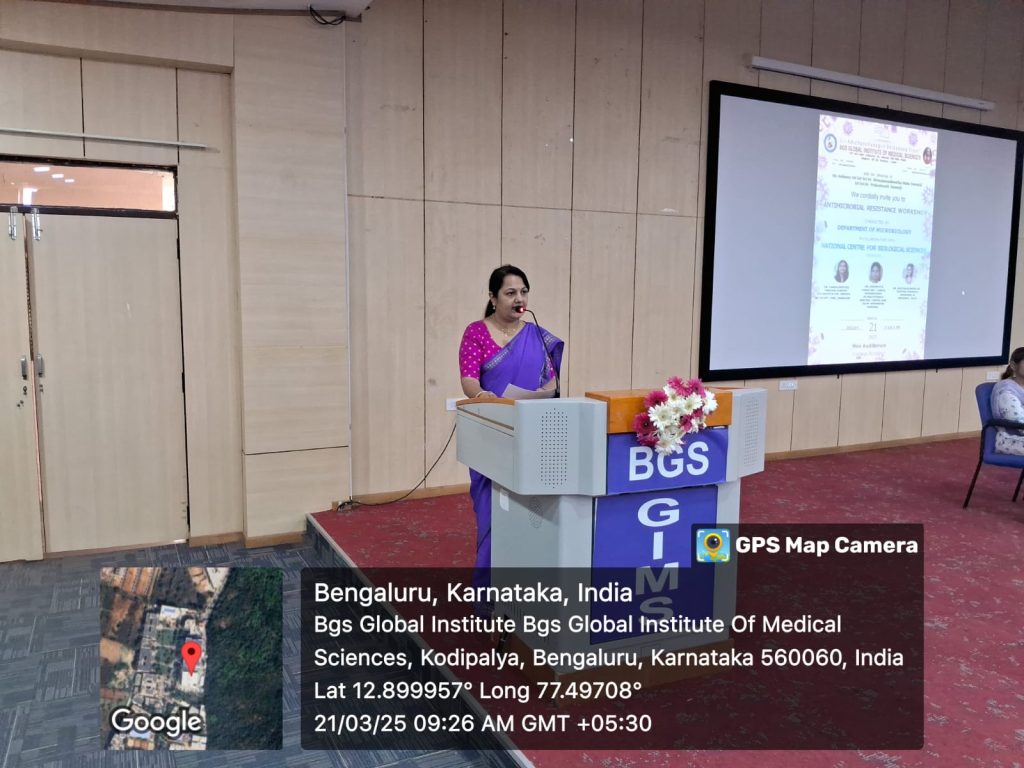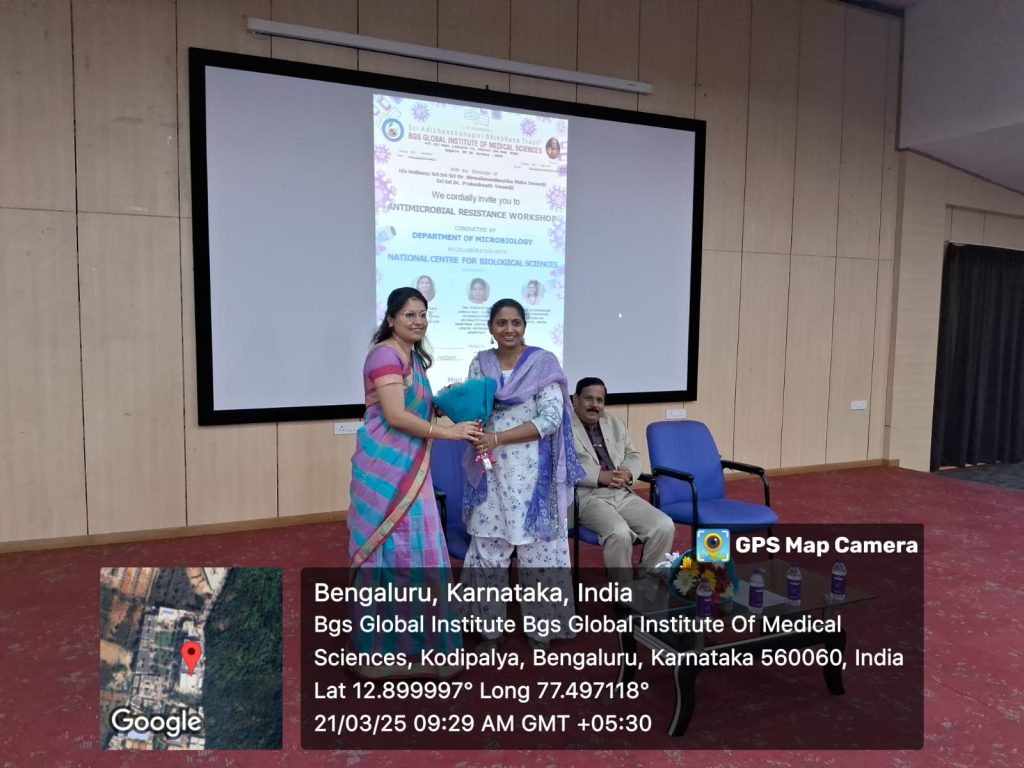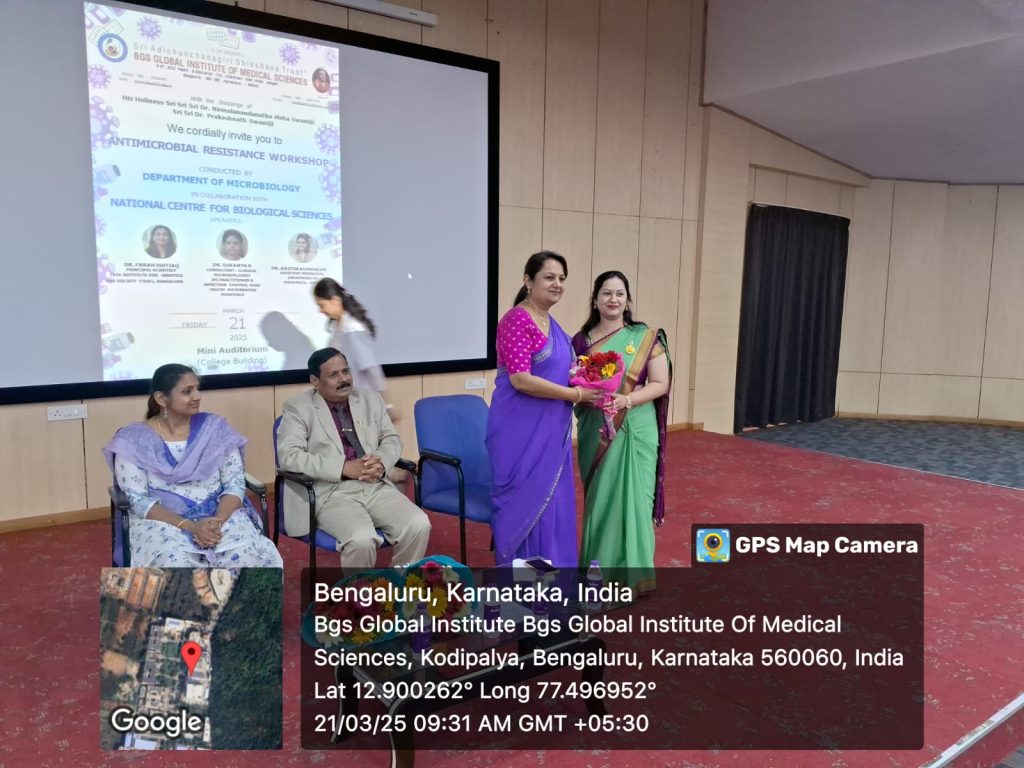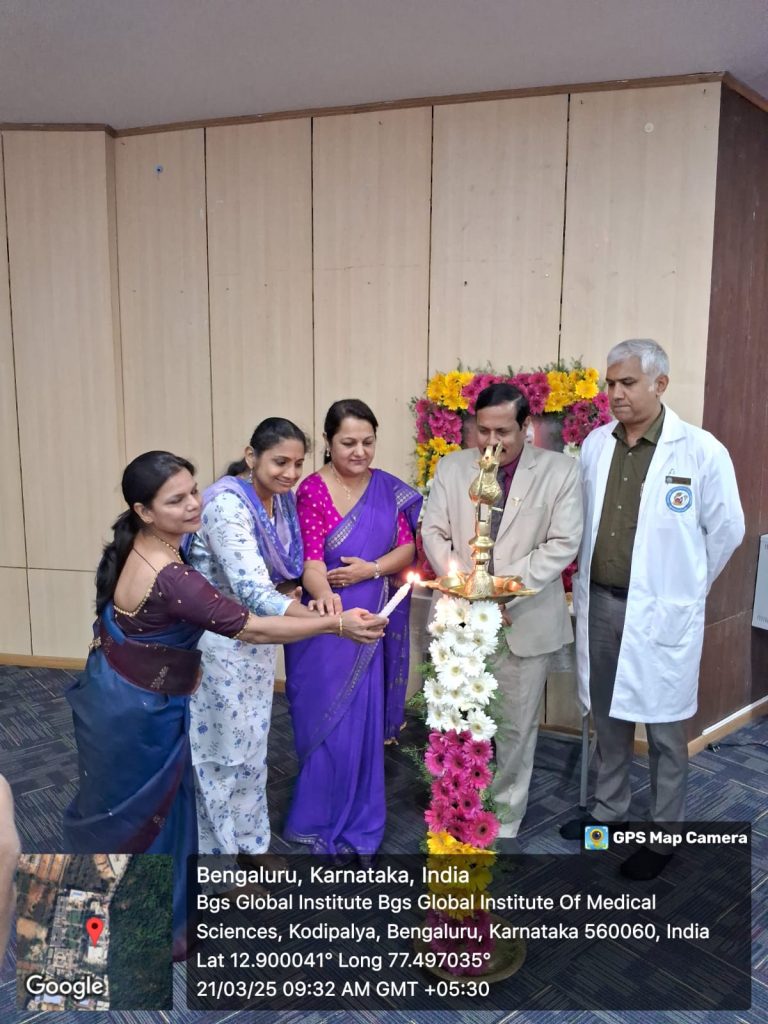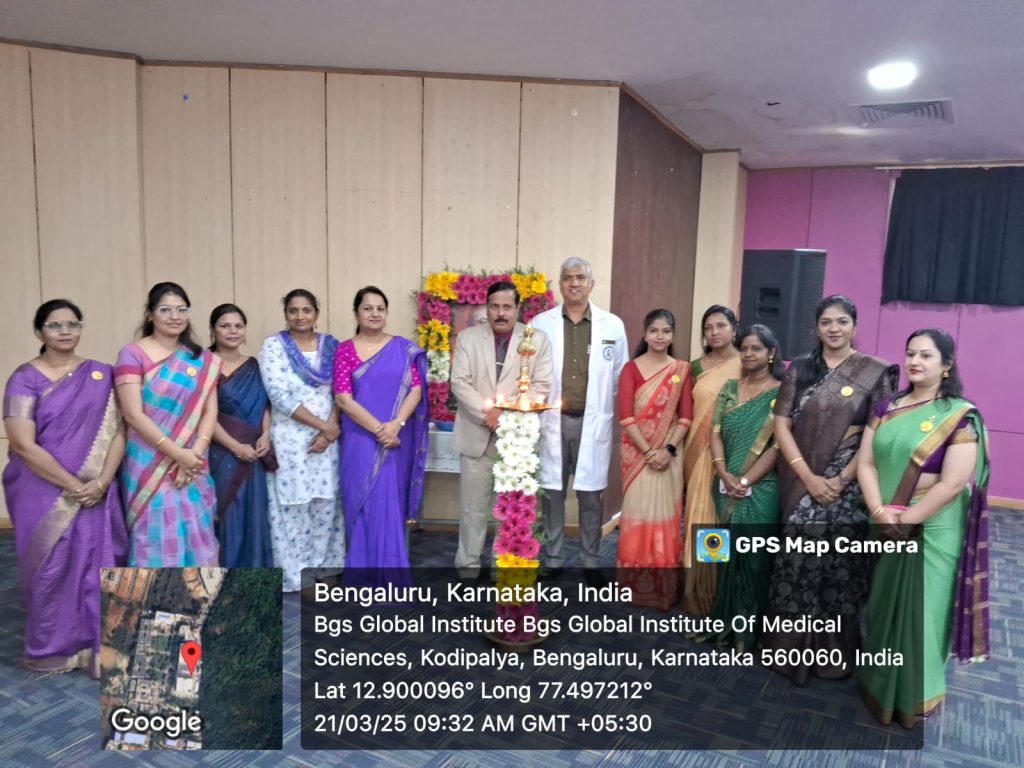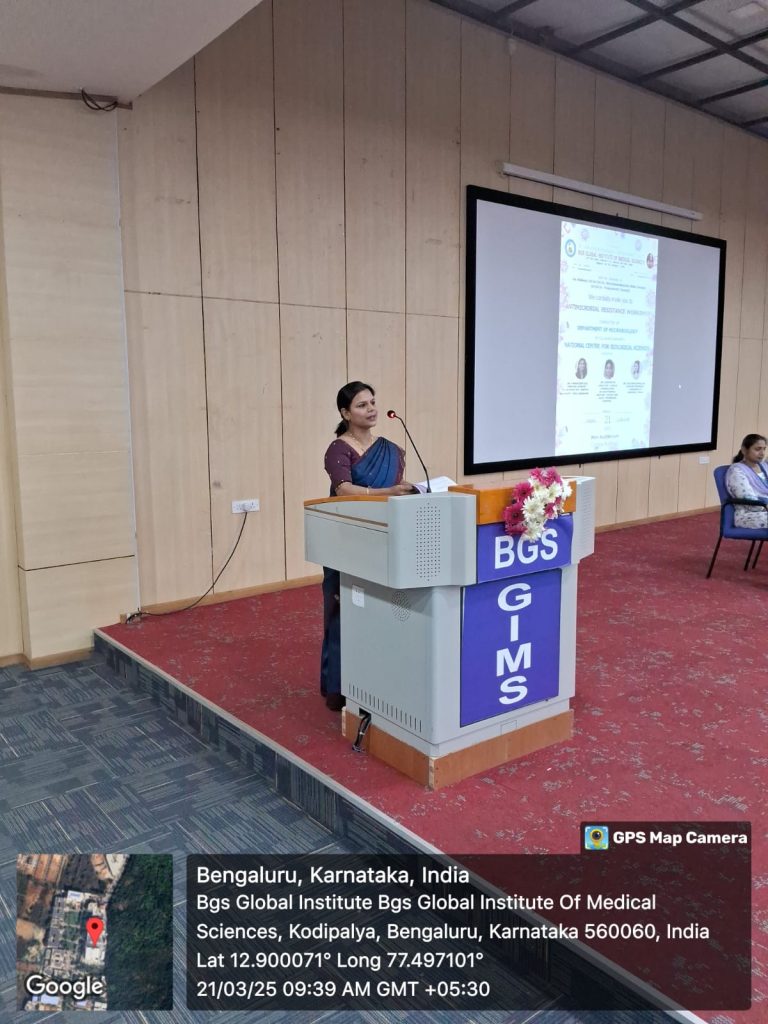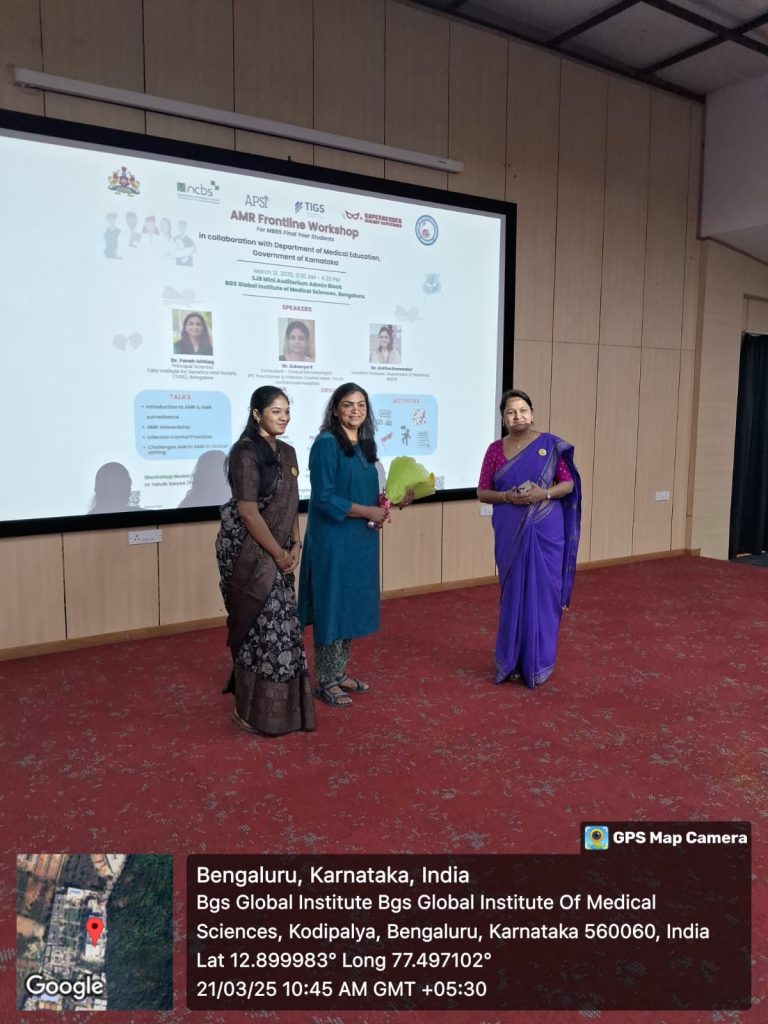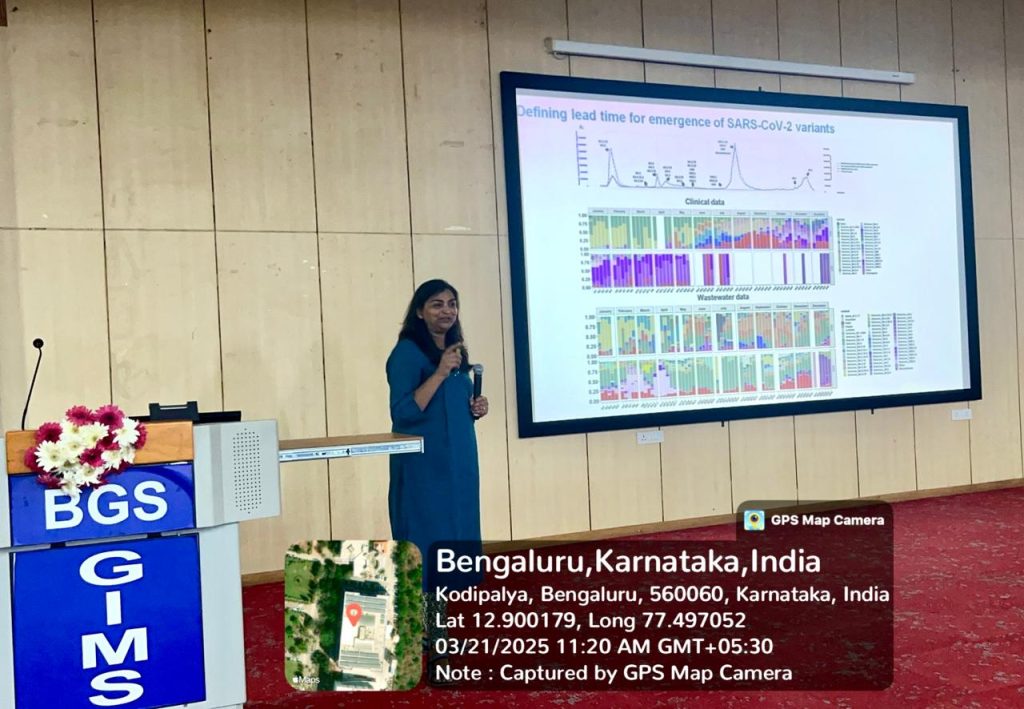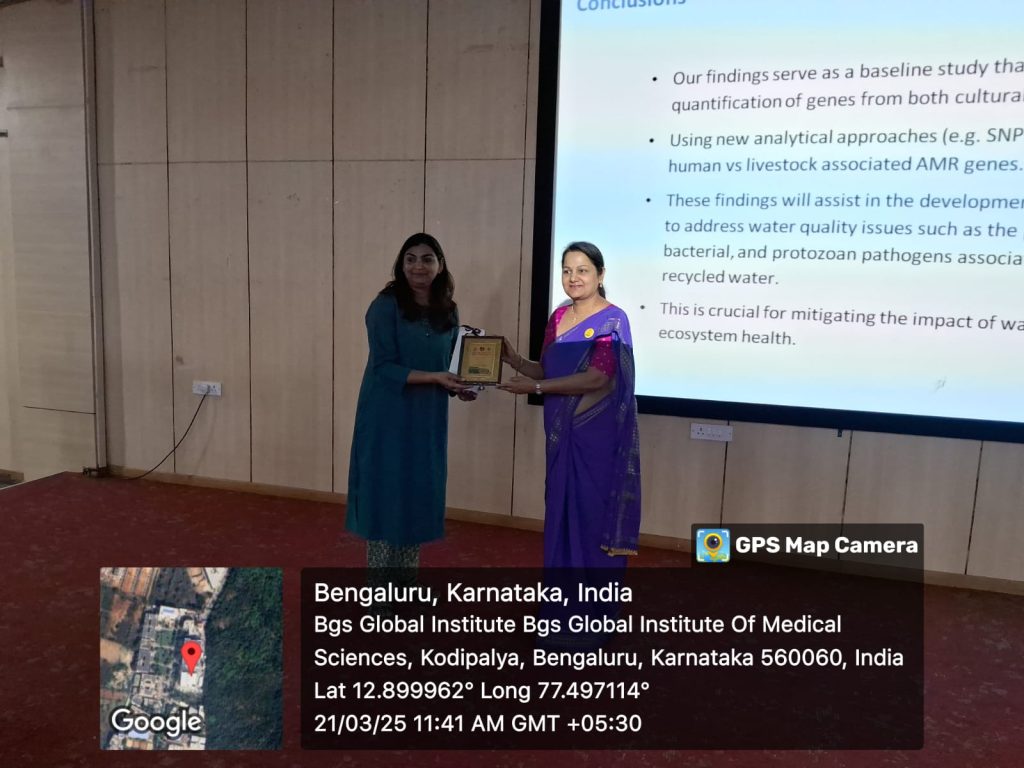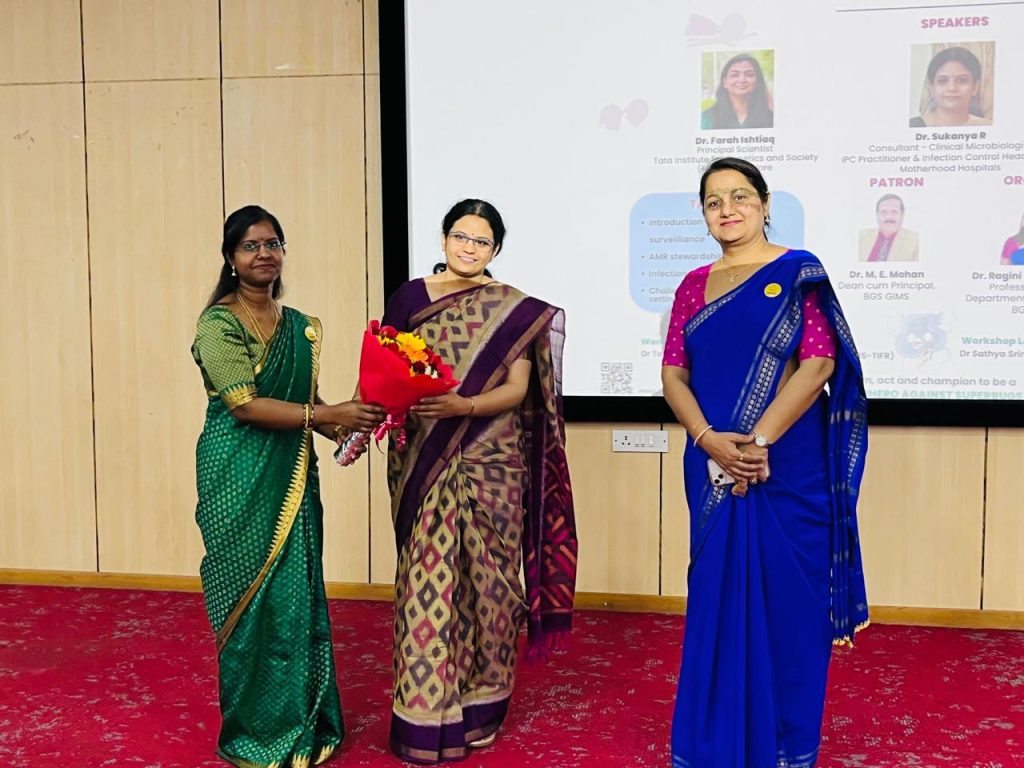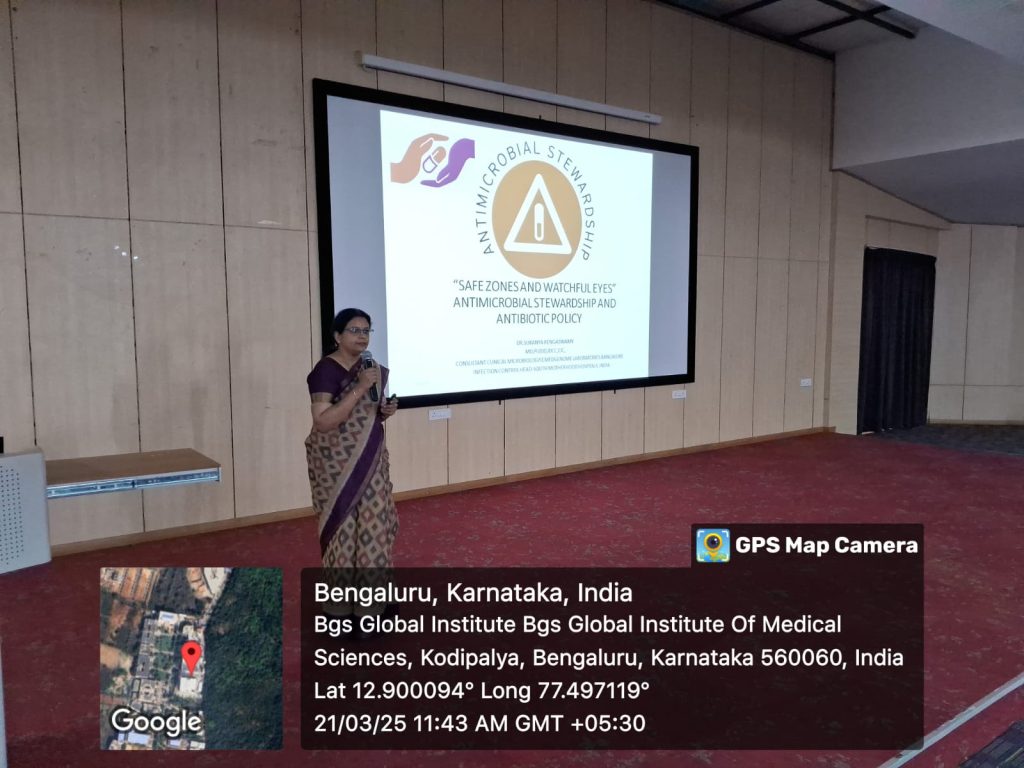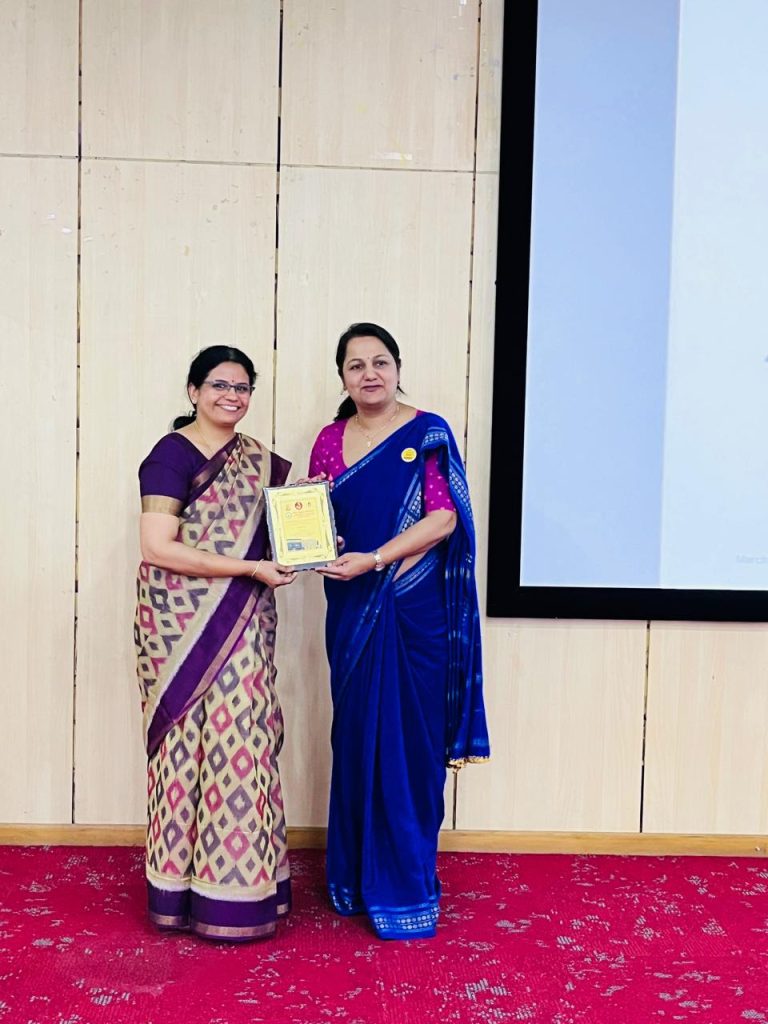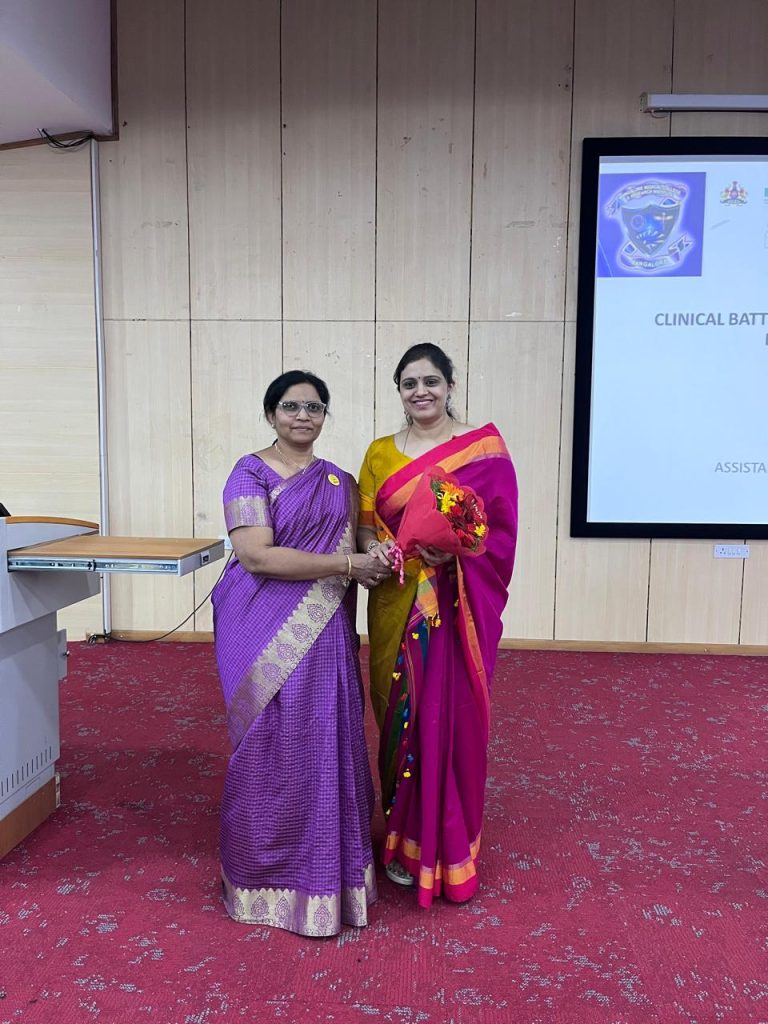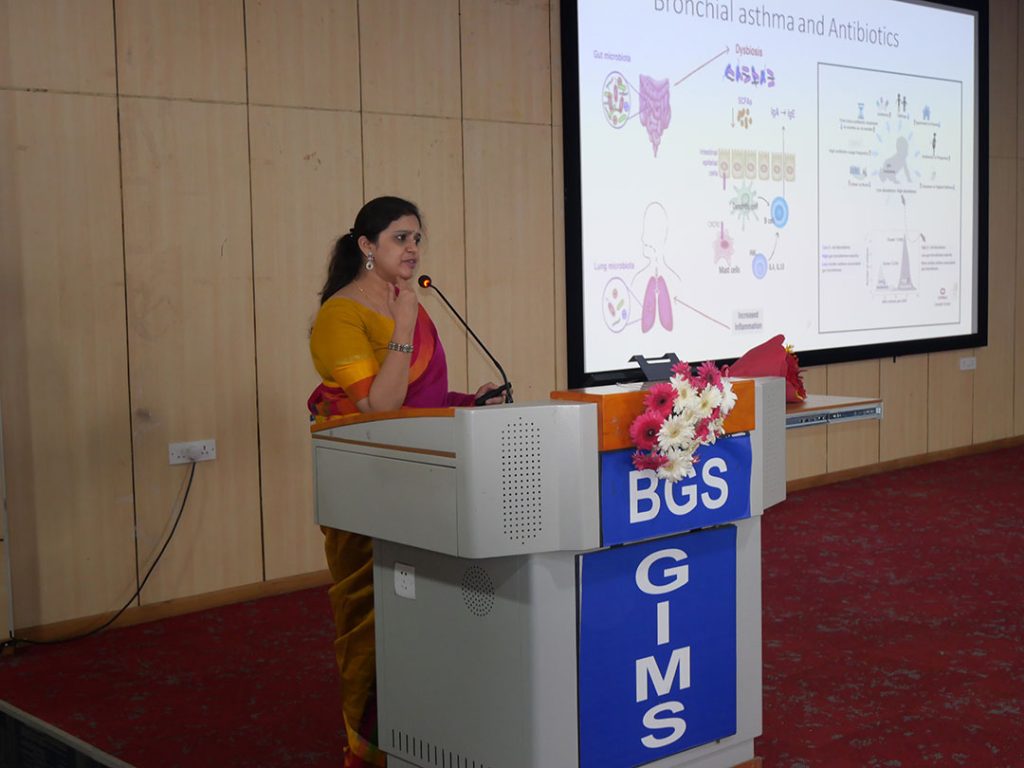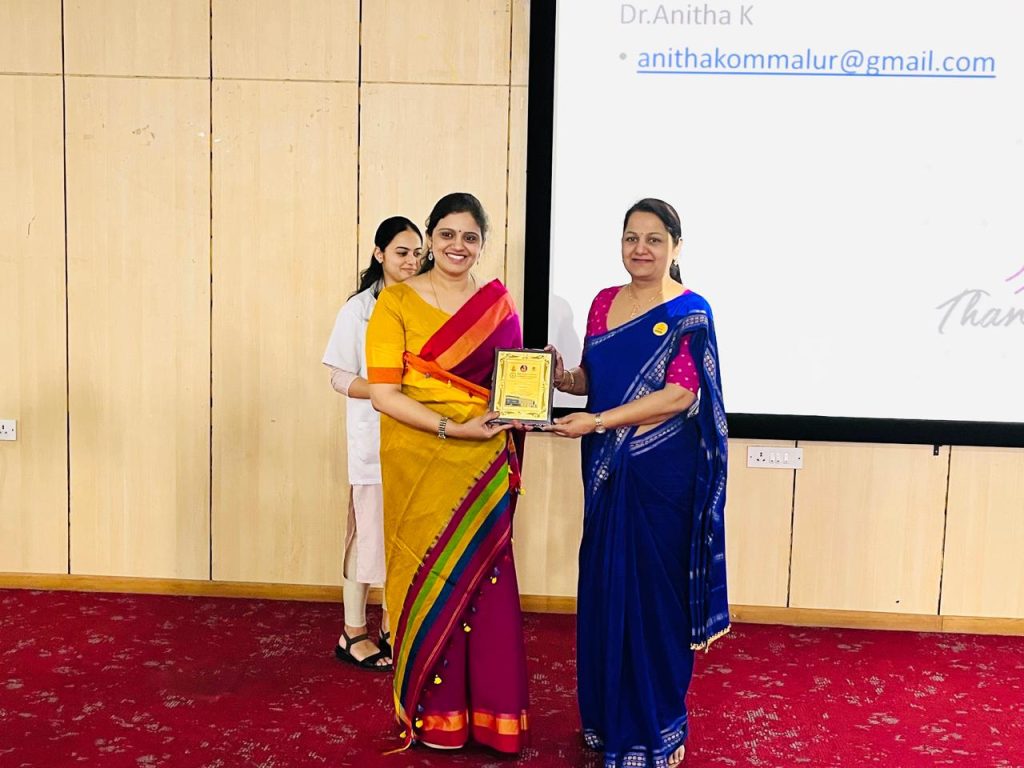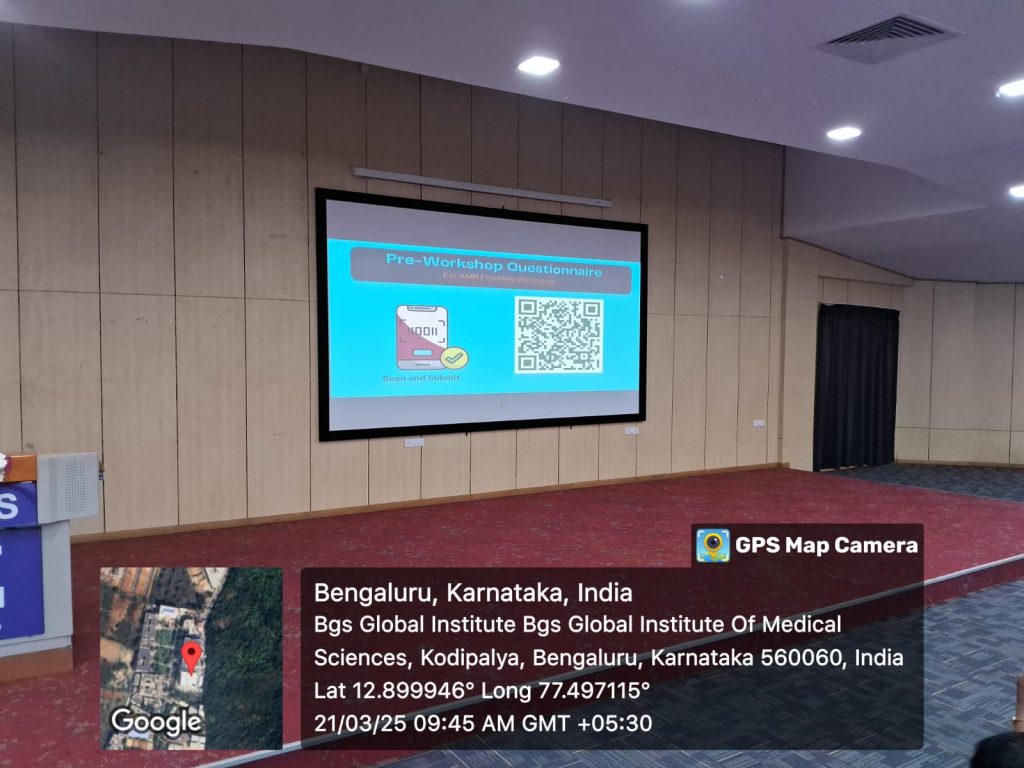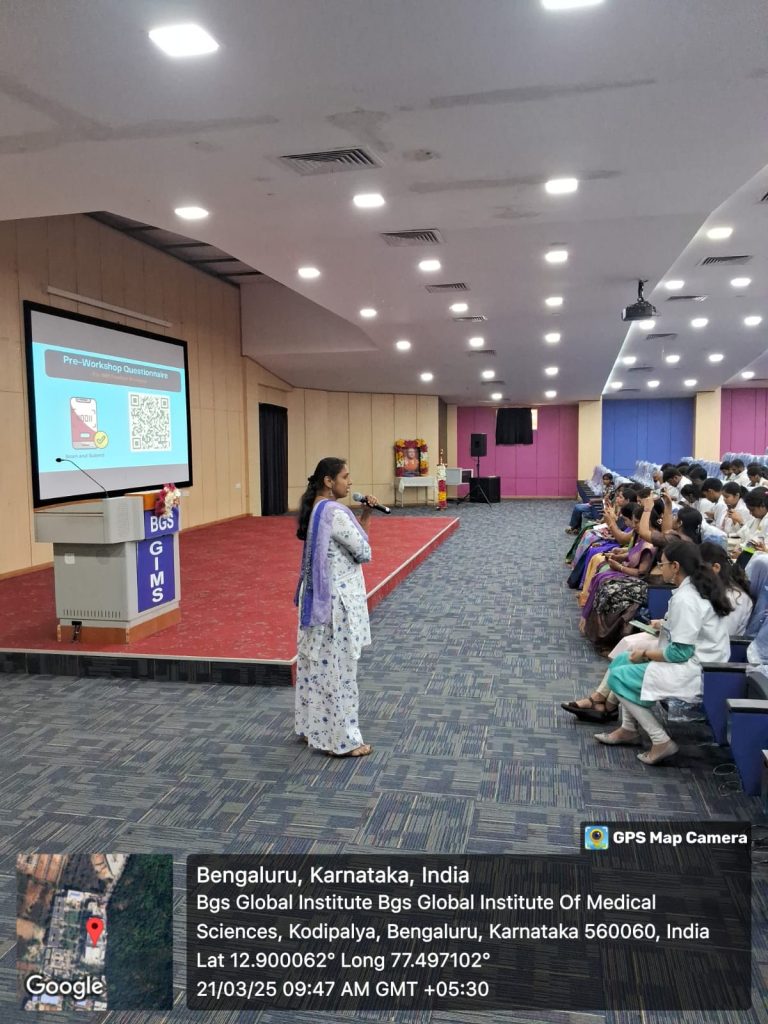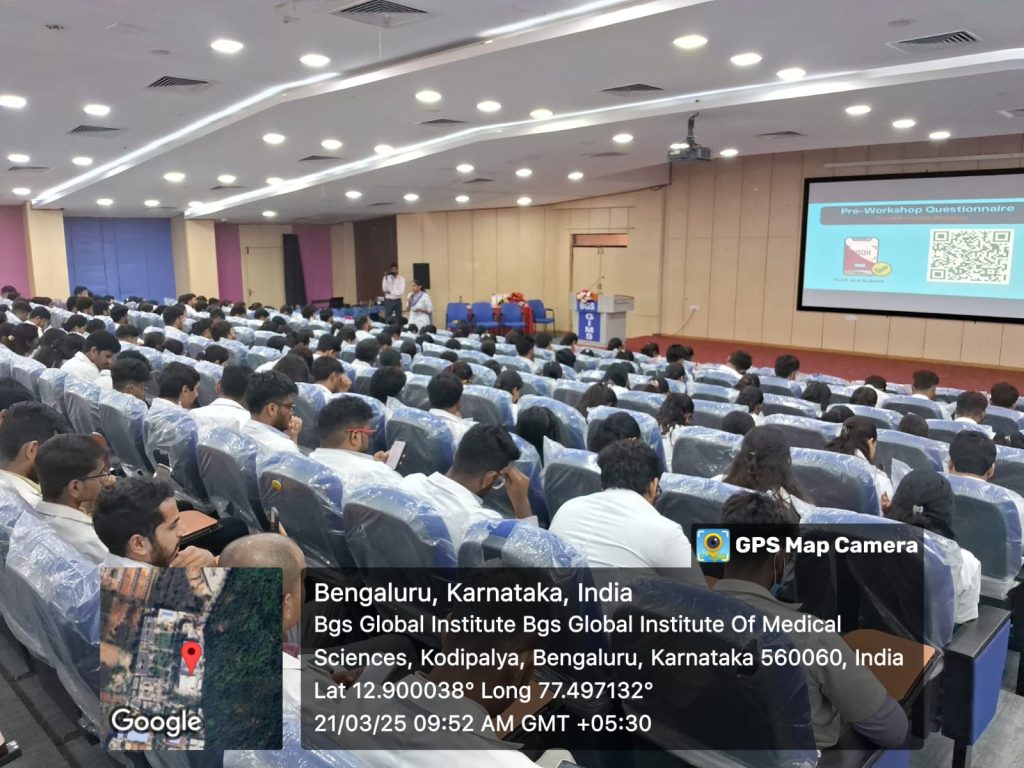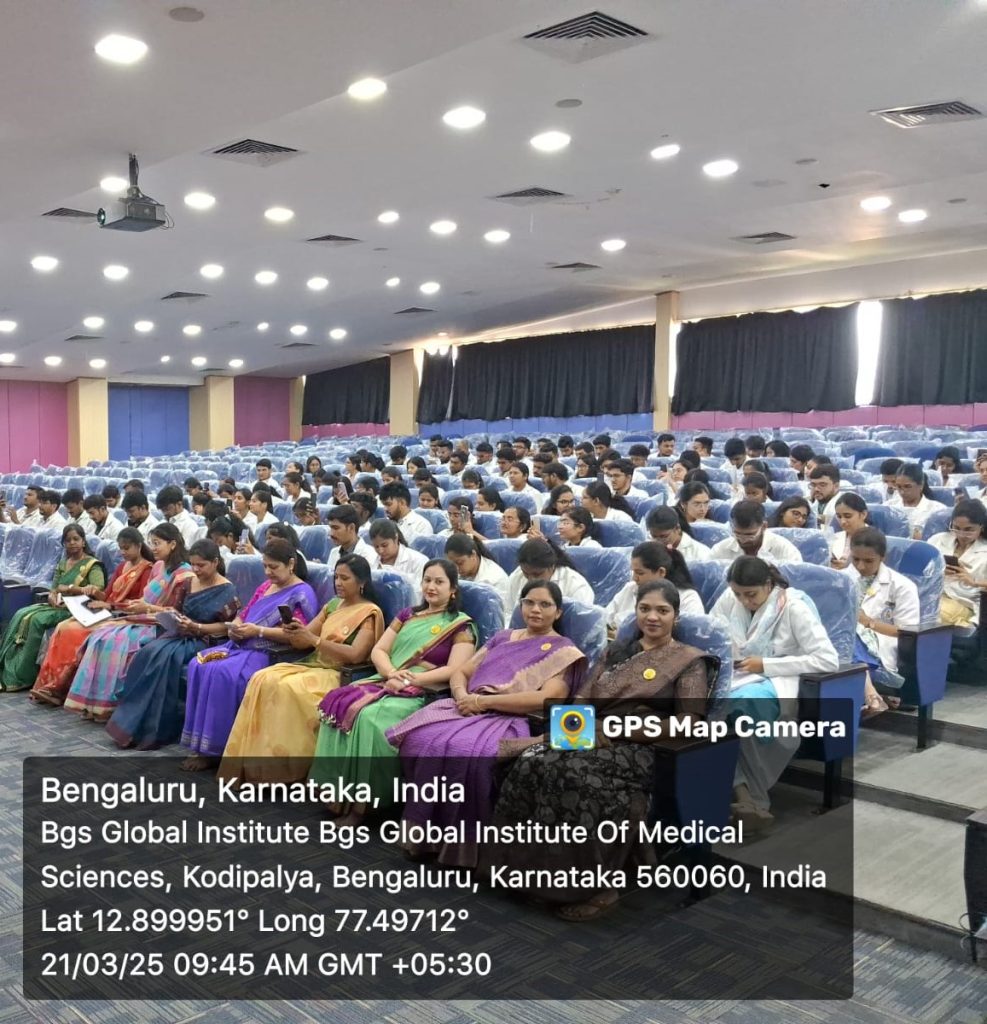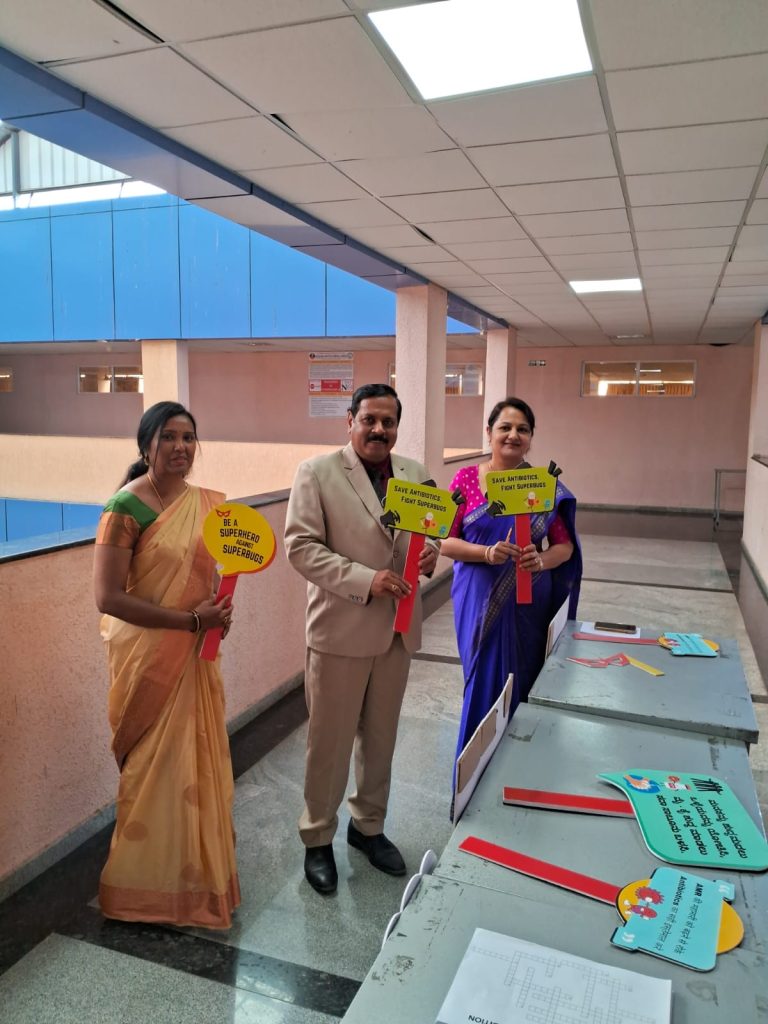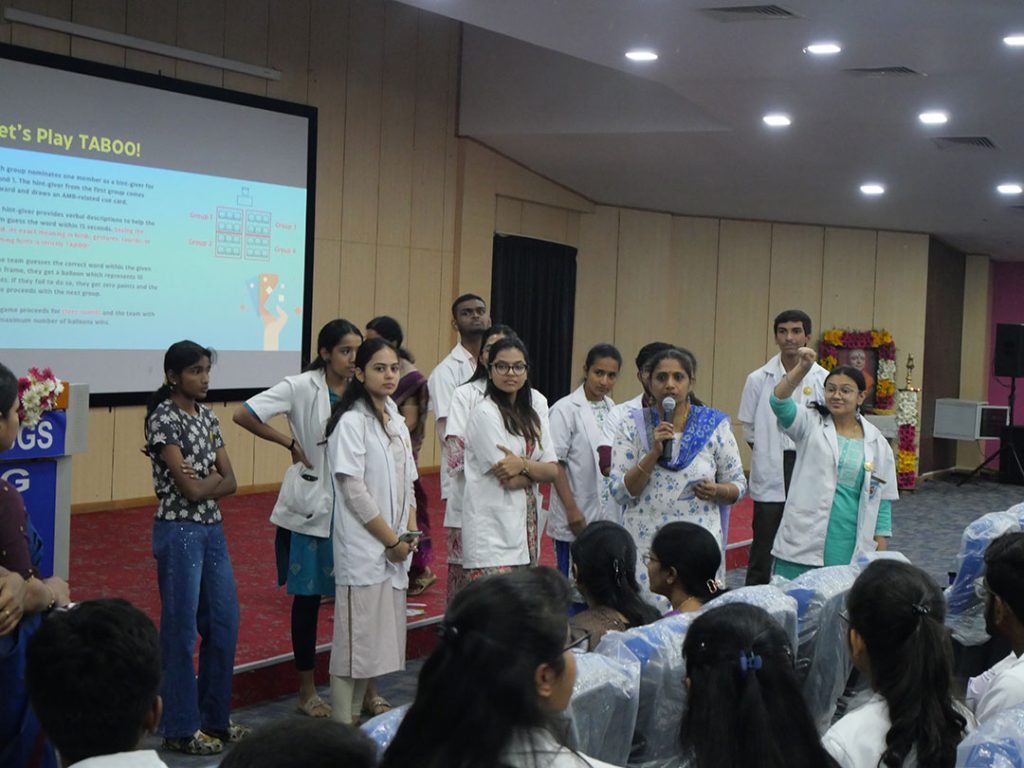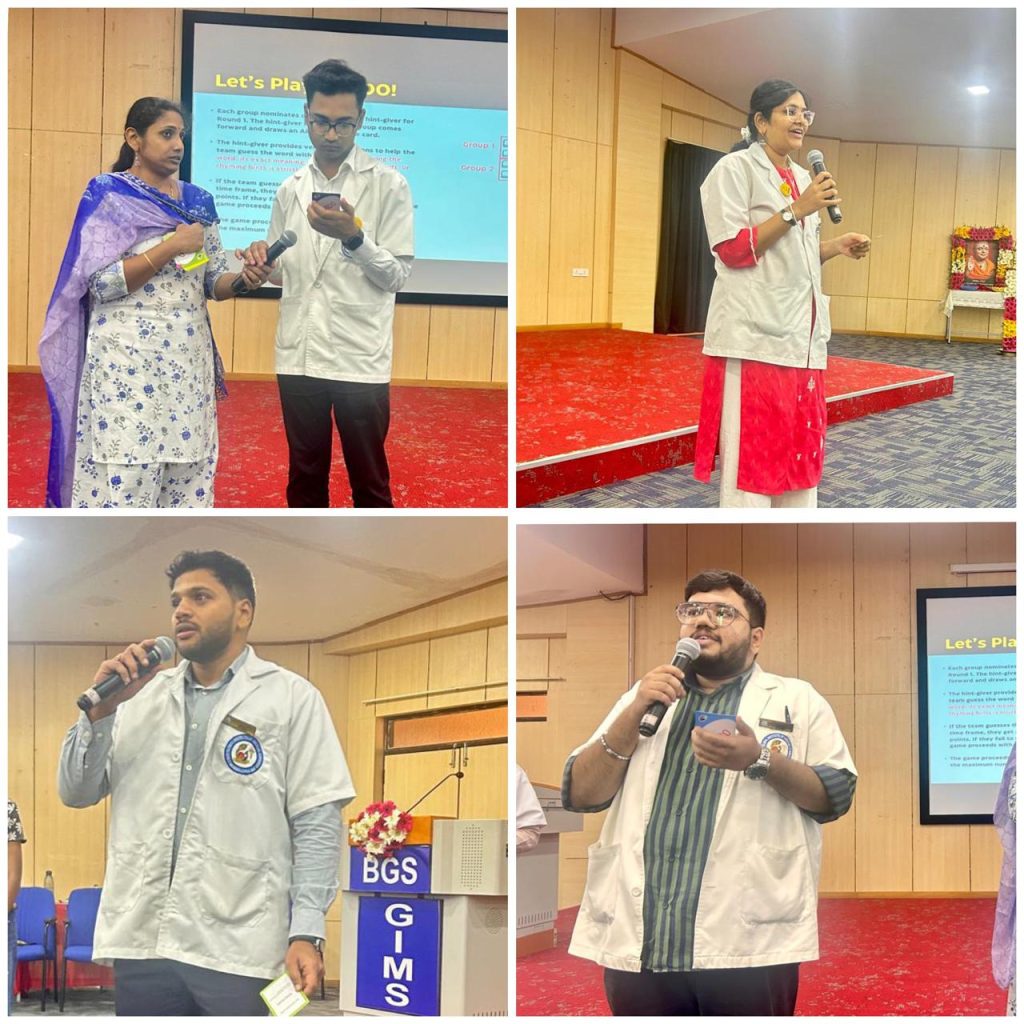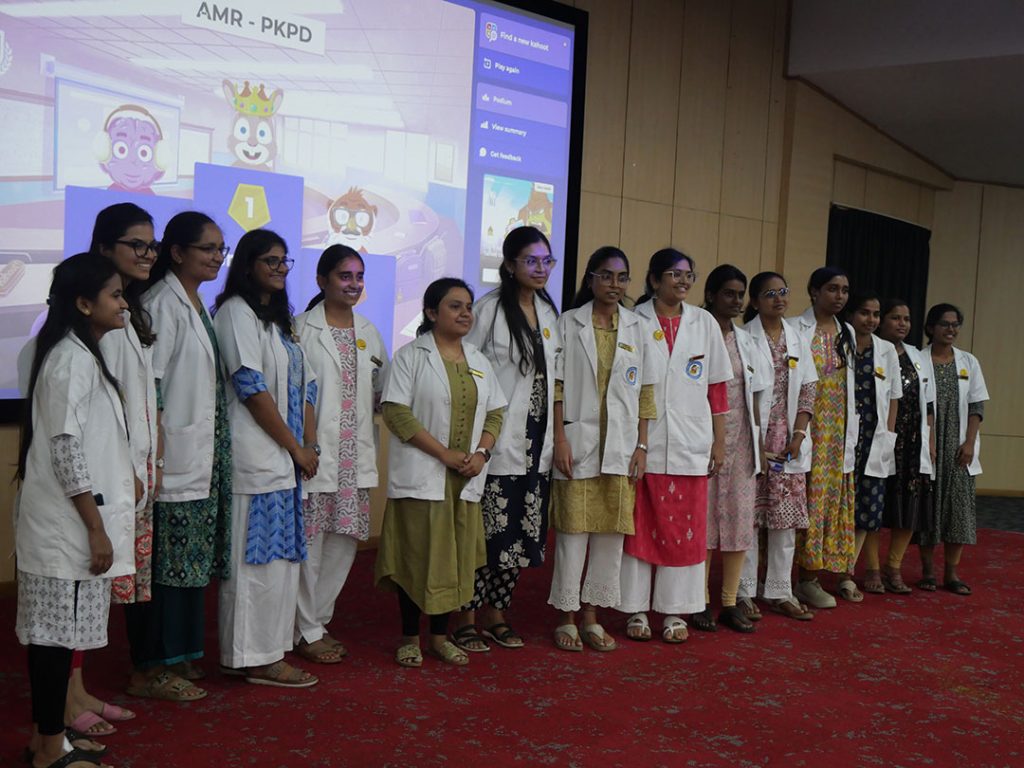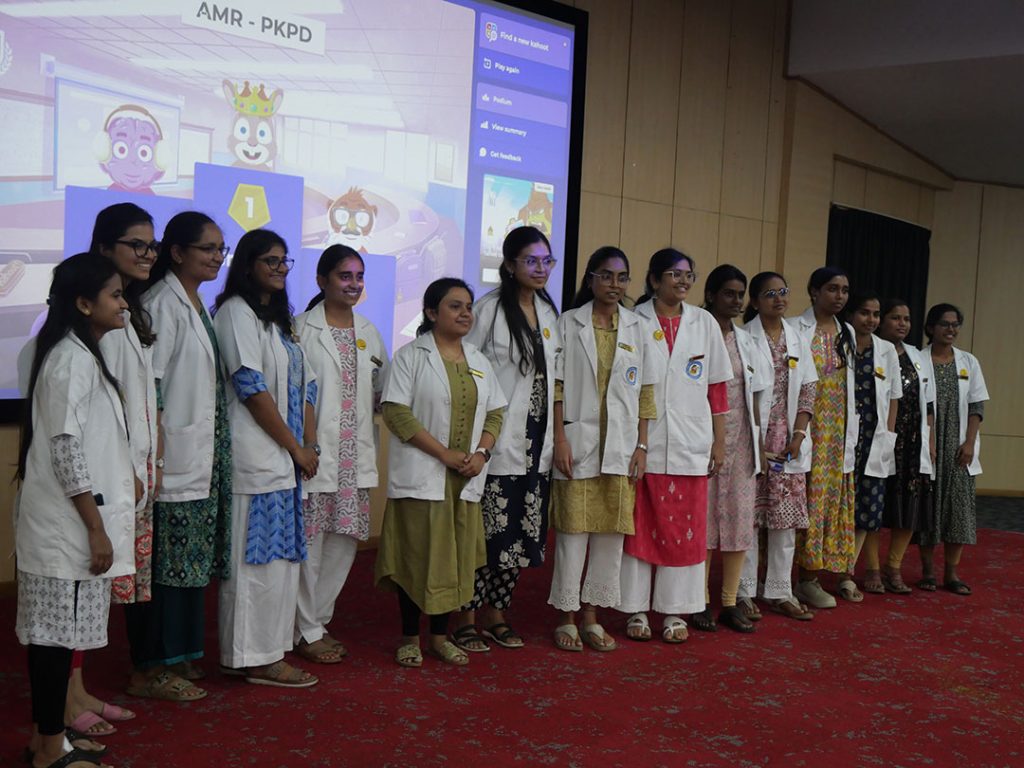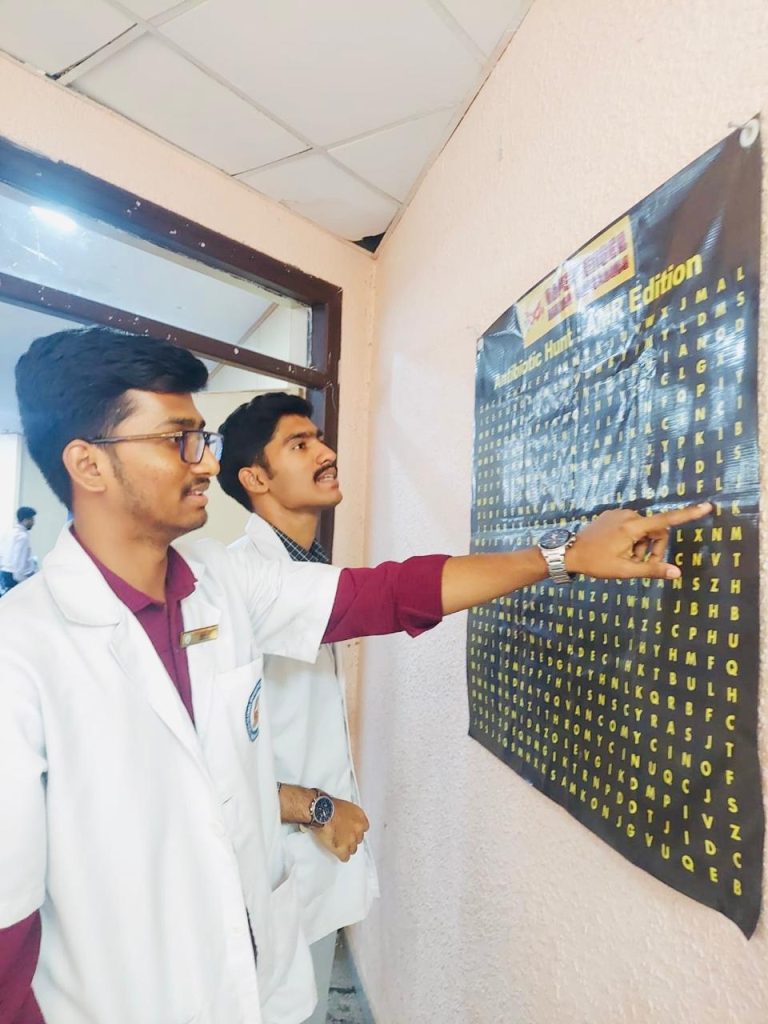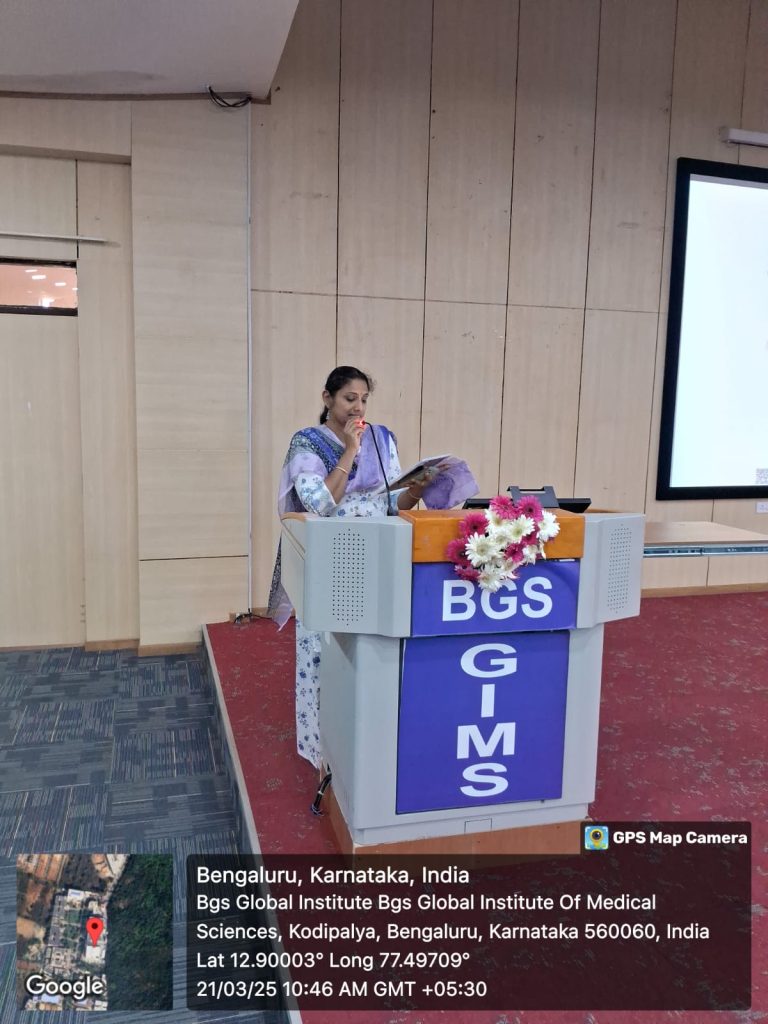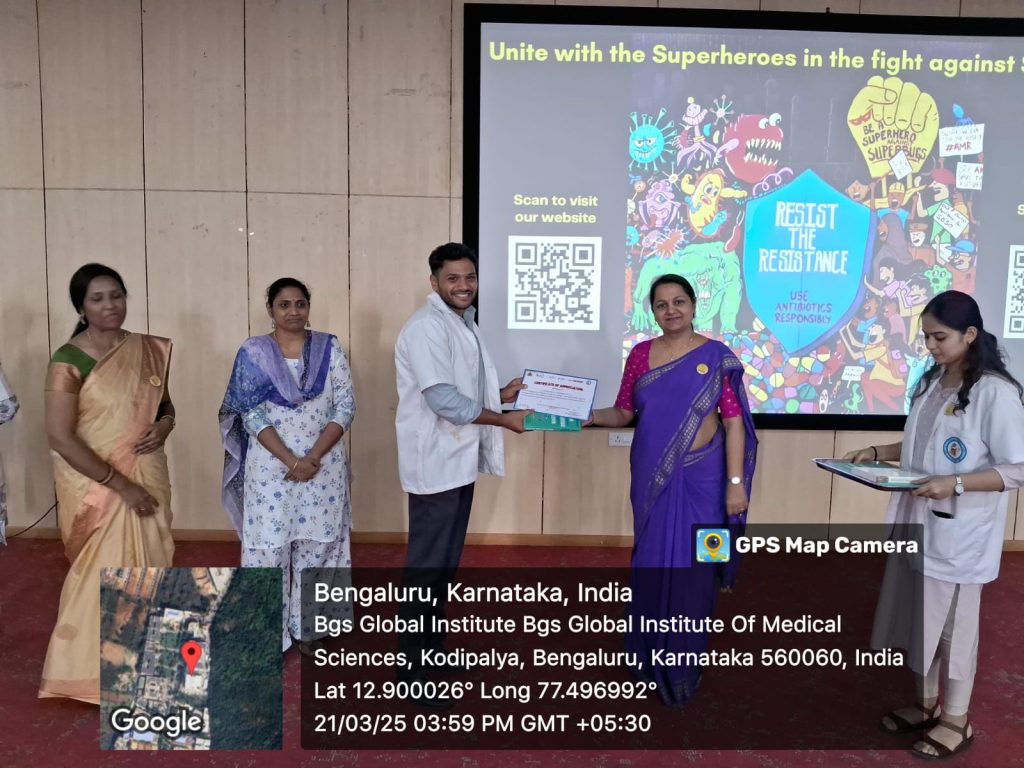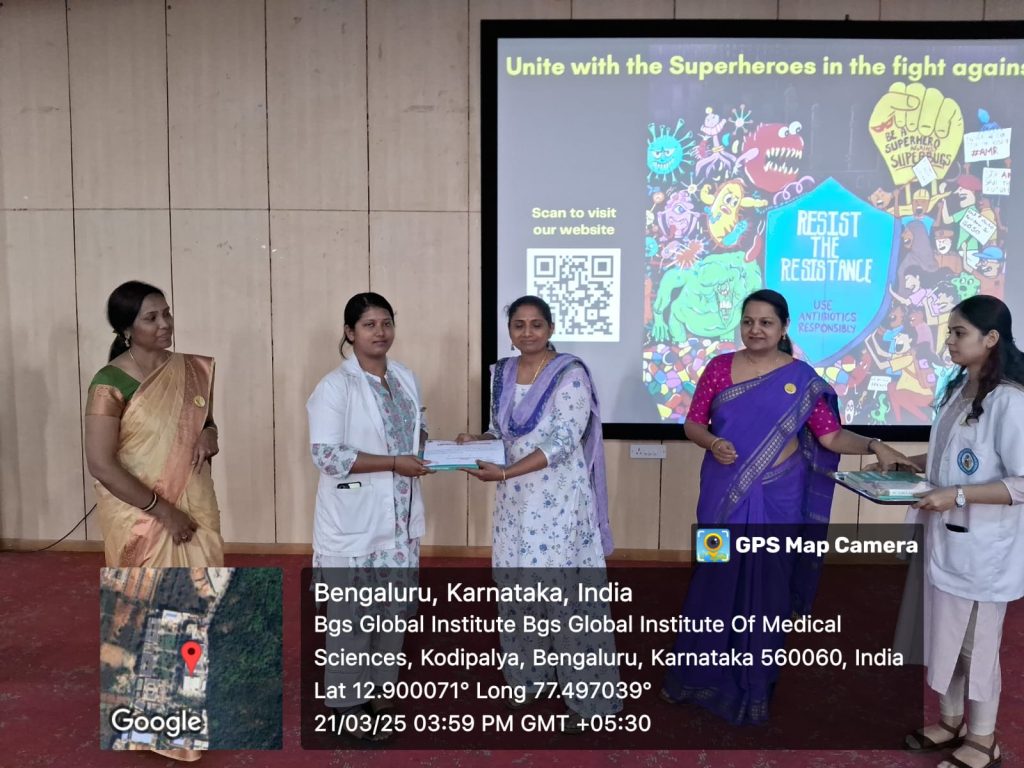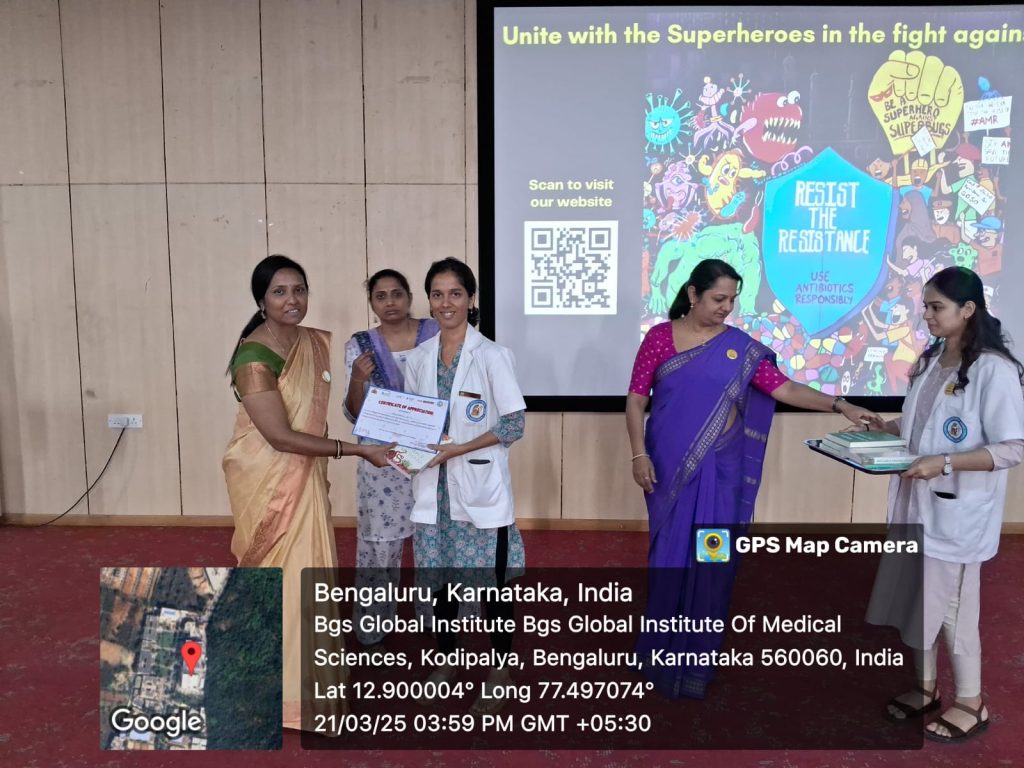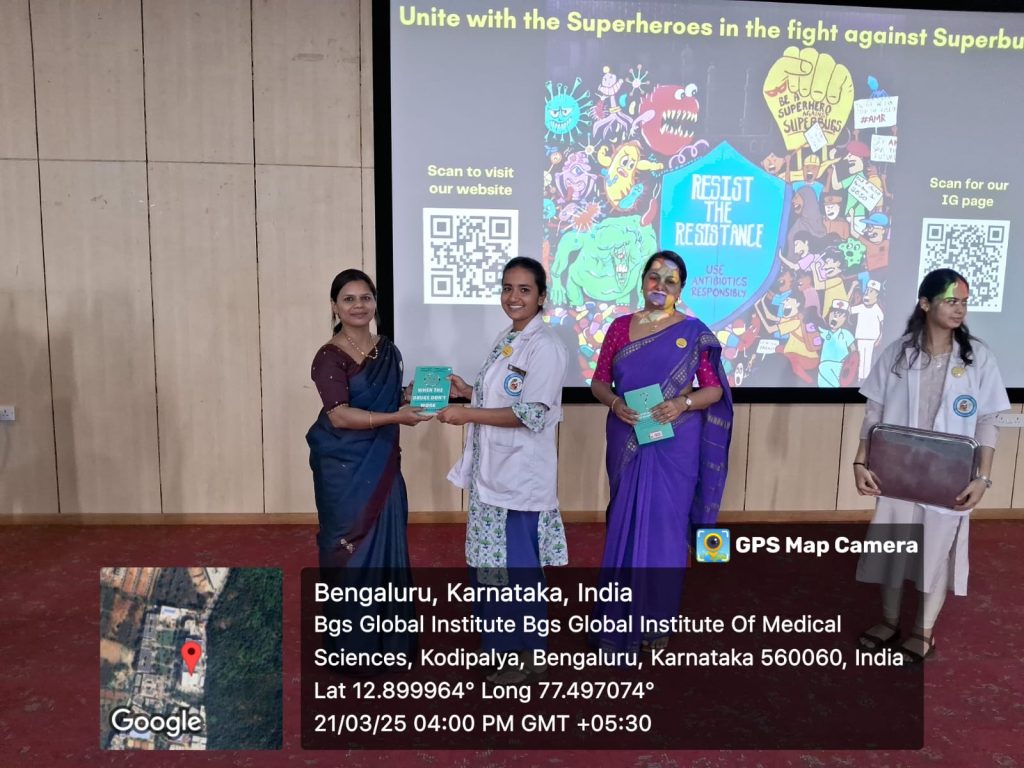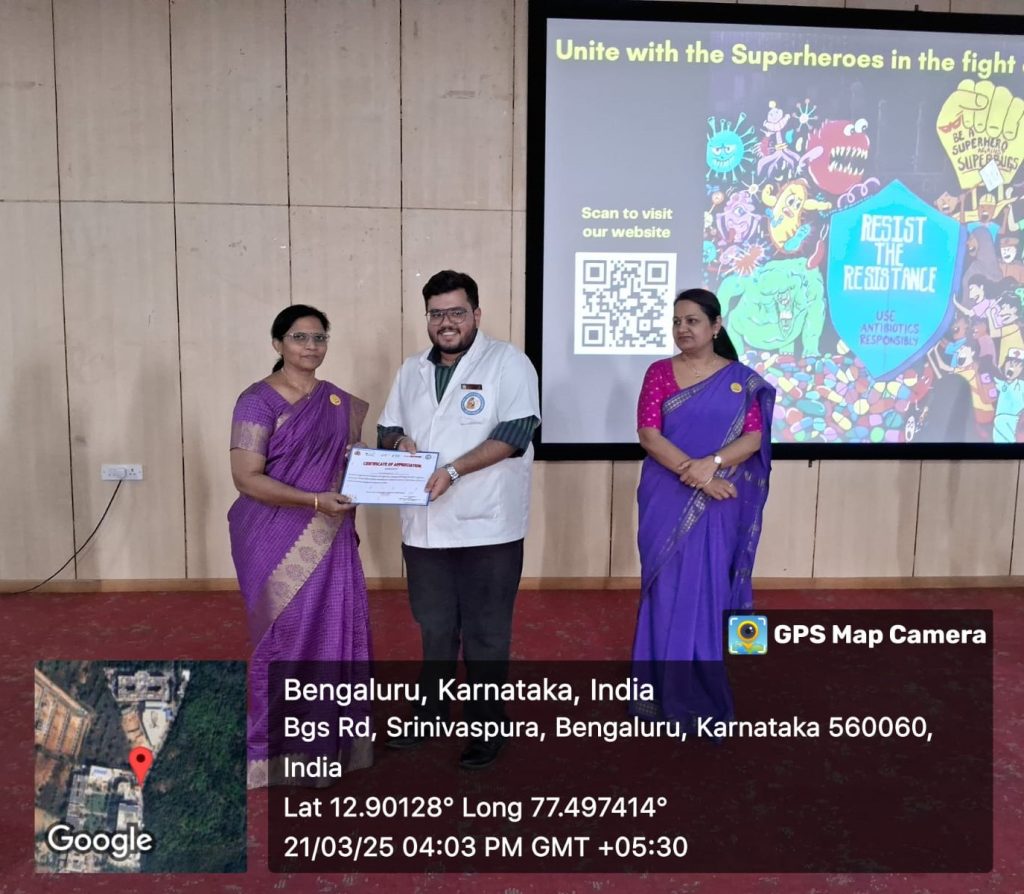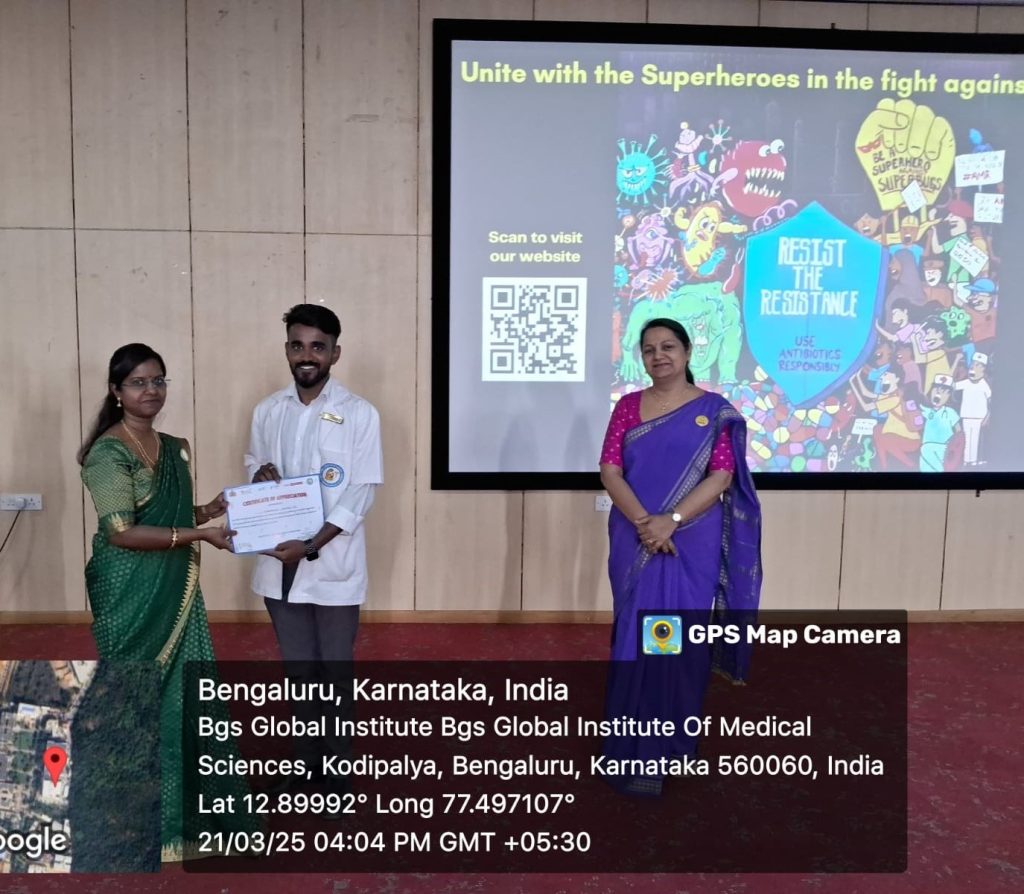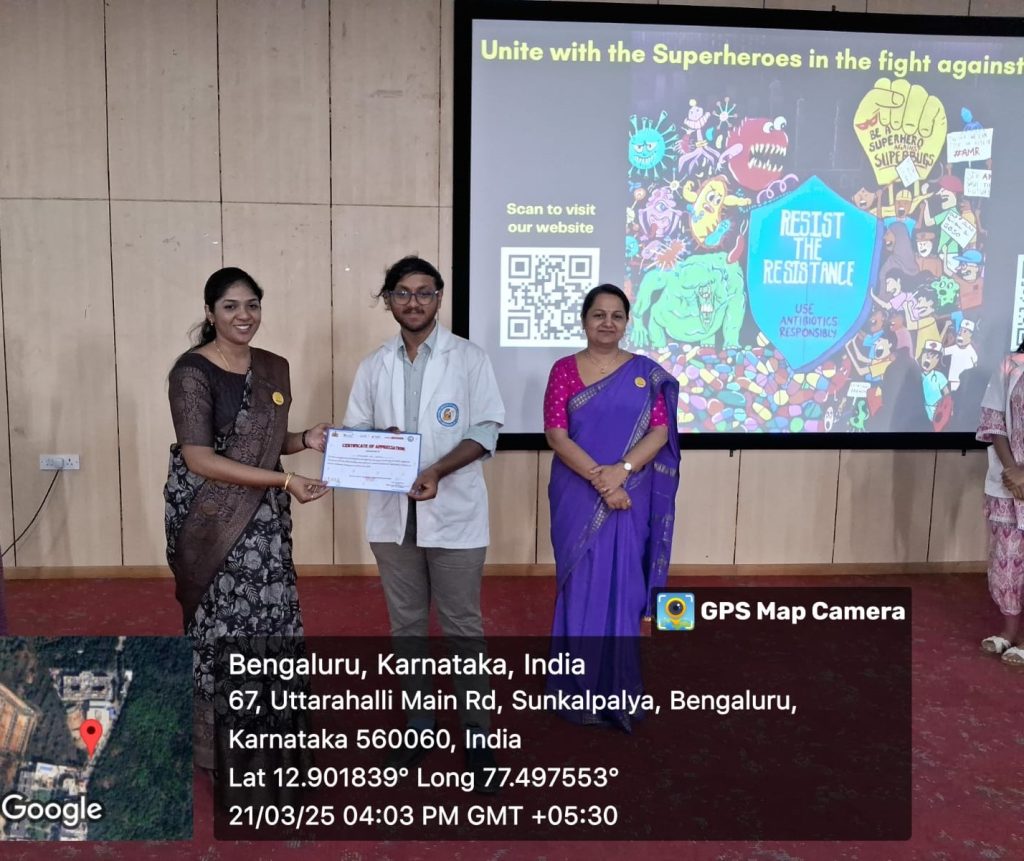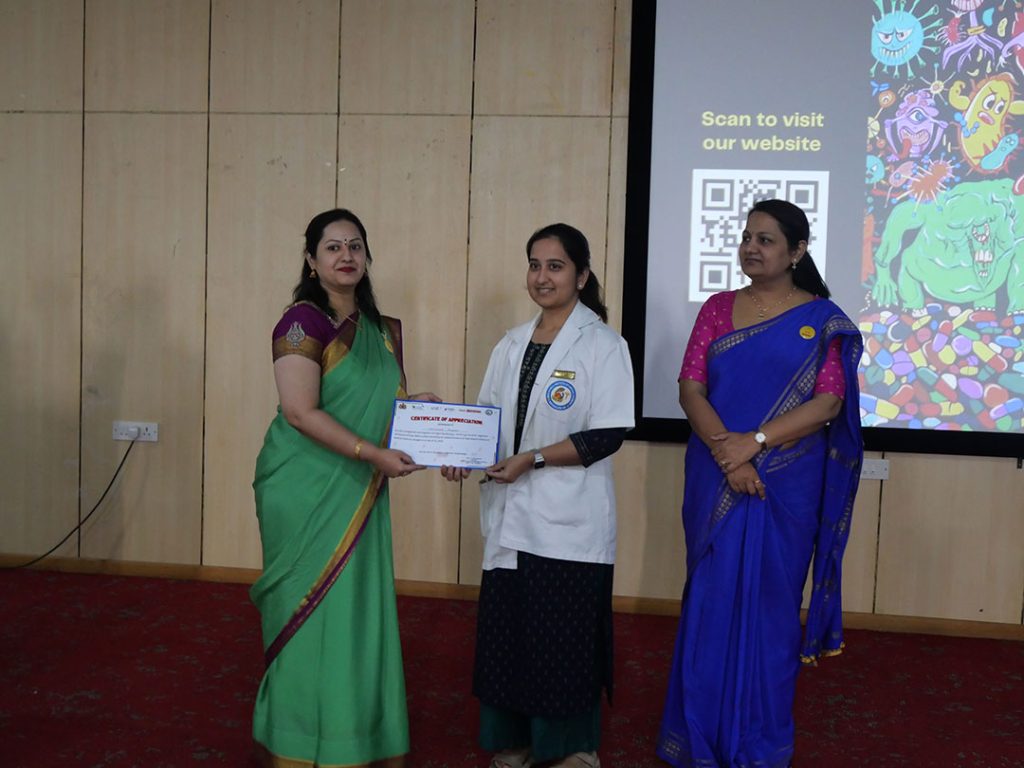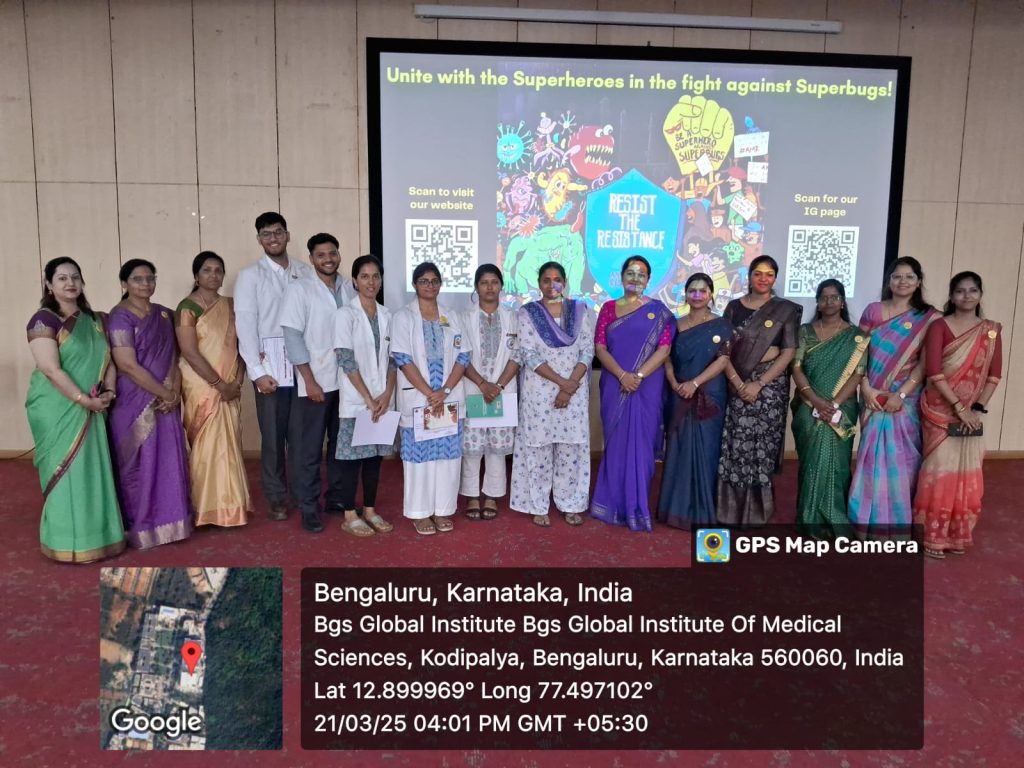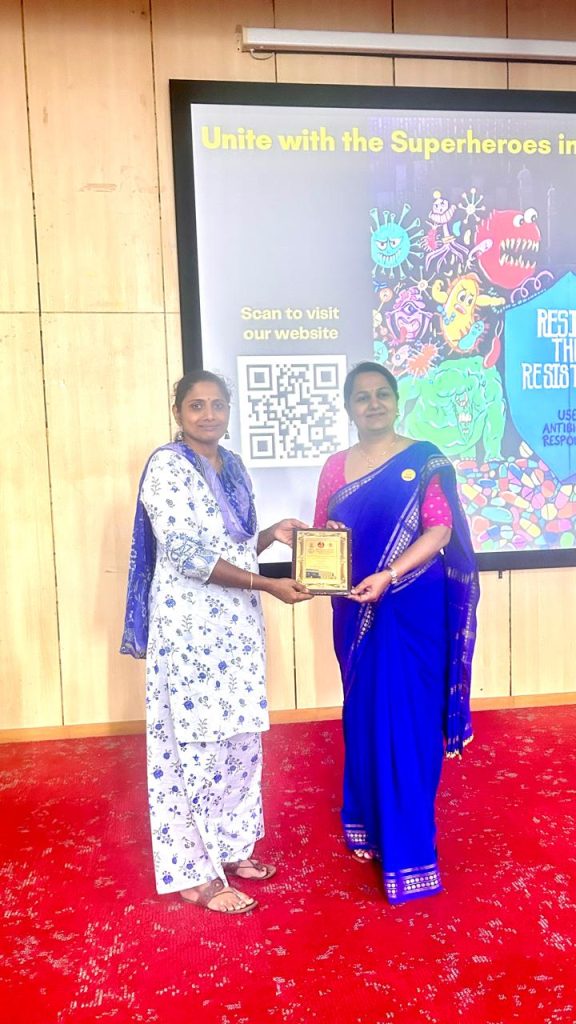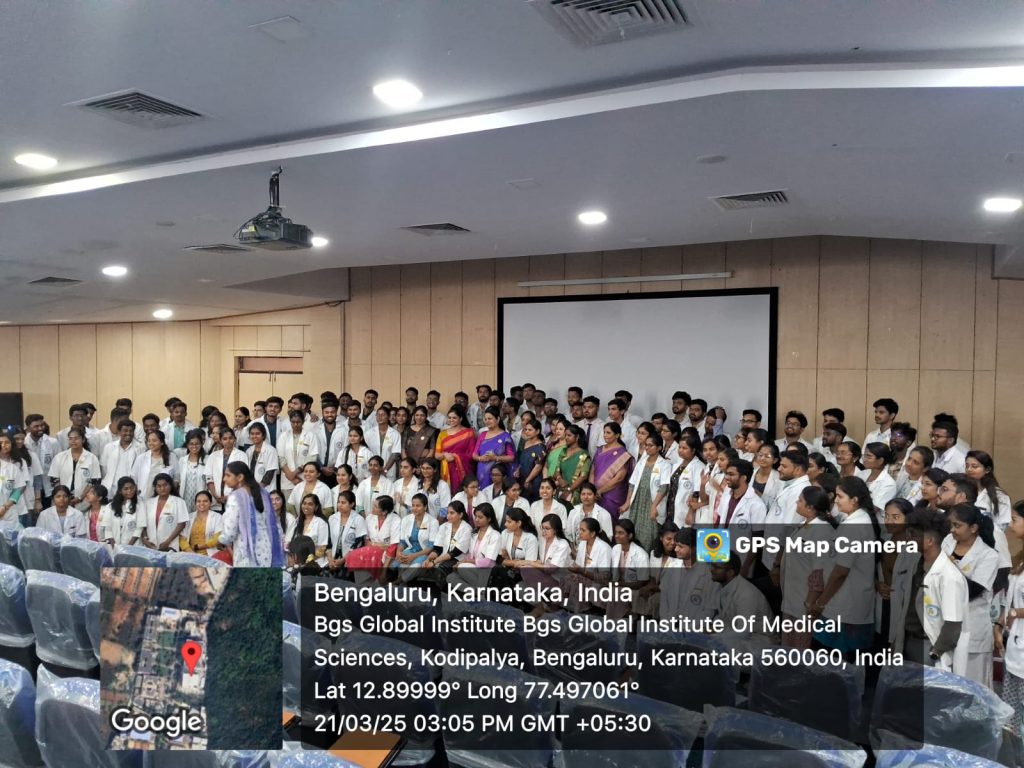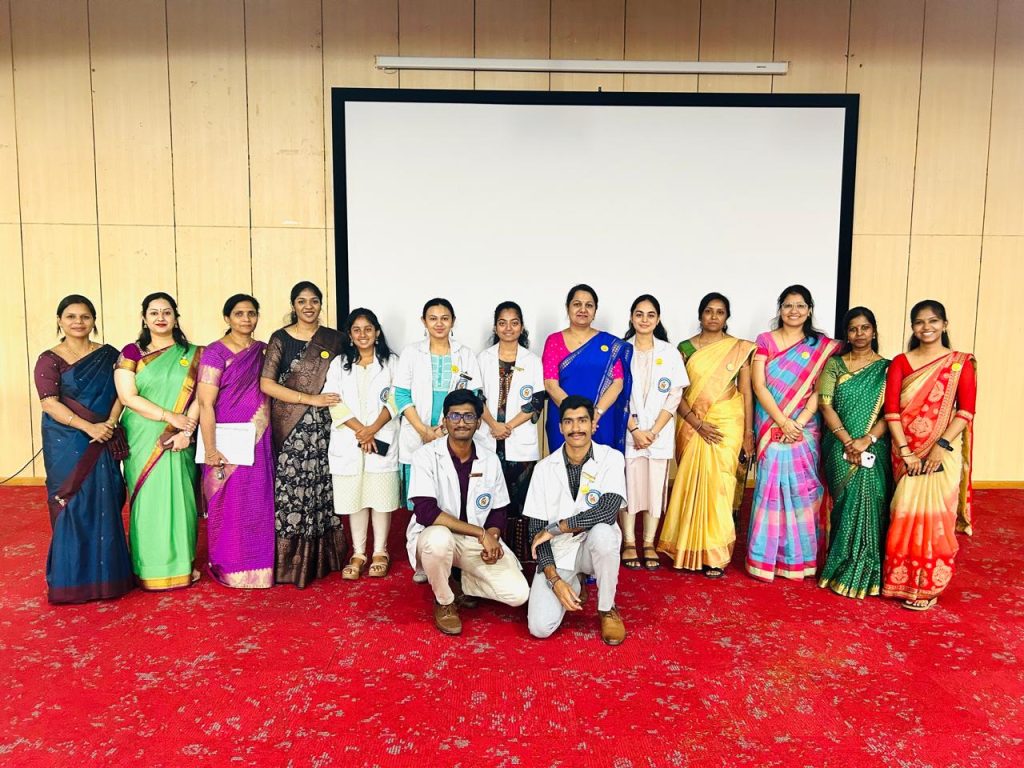AMR Awareness Workshop
The Antimicrobial Resistance Frontline Workshop was conducted by the Department of Microbiology, BGS GIMS in collaboration with National Centre for Biological Sciences on 21-03-2025.
Antimicrobial resistance (AMR) is a critical public health problem. Infections caused by drug-resistant organisms could lead to increased mortality and prolonged duration of hospitalization, causing a huge financial burden to the affected persons, and health-care systems. In recent times, there is an alarming rise in Antibiotic-resistant strains. Examples include the New Delhi metallo-beta-lactamases in Gram-negative bacteria, AmpC mediated drug resistance in Enterobacteriaceae, Vancomycin-resistant Enterococci (VRE), and XDR Mycobacterium tuberculosis. The rise of “superbugs” like the ESKAPE group of organisms is another cause for alarm. Drug-resistance is also being reported to last resort antibiotics like Carbapenems and Colistin. This denotes that such multi-drug resistant organisms can be treated only with the use of high-end antibiotics.
Therefore, we need to educate all the stake holders, regarding the rationale use of antibiotics, escalation and de-escalation of antibiotics, antibiotic cycling, initiation and implementation of antibiotic policy, hospital infection control and antimicrobial stewardship programmes. This is the background and need for conducting this interactive workshop.
The introduction to the workshop was given by Dr Shwetha D C, Associate Professor, Dept. of Microbiology. Welcome note was delivered by Dr Ragini Ananth Kashid, Professor & HOD, Dept. of Microbiology, followed by lamp lighting. The Inaugural Address was given by Dr M E Mohan, Dean cum Principal and Vote of thanks by Dr Shwetha D C, Associate Professor, Dept. of Microbiology. The Workshop organizers and facilitators were introduced by Dr Sathya Srinivasachari, Resource person.
The following scientific sessions were conducted,
Session – 1: “Science of AMR and Surveillance Efforts of APSI” by Dr Farah I, Research Scientist, Tata Institute of Genetics and Society (TIGS), Bengaluru.
Session – 2: “Safe Zones & Watchful Eyes: Antibiotic Stewardship and Antibiotic Policy” by Dr Sukanya R, Consultant Clinical Microbiologist at Medgenome Laboratories, Bengaluru and IPC Practitioner & Infection Control Head- South at Motherhood Hospitals.
Session – 3: “Clinical Battlefront: Challenges due to AMR in clinical setting” by Dr Anitha Kommalur, Assistant Professor, Department of Pediatrics, Bangalore Medical College and Research Center (BMCRI), Bengaluru.
There was good interaction between speakers and the audience related to the topics.
Various student activities like, Break the ‘Taboo’: AMR Edition, Let’s play KAHOOT, Quiz and Crossword were conducted by resource person, Dr Sathya Srinivasachari. Students participated in these activities enthusiastically and in the process, learnt about the different aspects of AMR. This workshop has enabled Final year MBBS students to tackle AMR appropriately in various clinical settings. We received very good feedback from the speakers, resource person and from the students, and they all have urged us to conduct such programmes once more in future.
